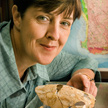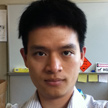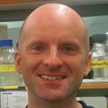Question: Have you always loved doing what you do since the very beginning or did you slowing learned to love your occupation?
Keywords: career, day2day, fulfillment, occupation
Comments
-
commented on 18 May 2012:
I dont know what I like so its hard for me to know what i should do in my future!
-
Katecommented on 18 May 2012:
That’s OK. Try different things. Uni lets you explore different subjects more then school. I have a biology undergraduate degree, a geology PhD and I work in a chemistry department. As you move on your learning isn’t as formal as being in a class and doing exams but independent learning from papers and your research so you can move more freely between disciplines. I didn’t find out what I wanted to do until I was 30 and I now love what I do and I am successful at it. You’ll find your path
-
commented on 18 May 2012:
You still plenty of time to figure out what you should do in your future. Find what you like and what you are good at doing. Talk with an adviser on the options available to you in those areas. See if any of those options interest you. You may not find any to be interesting, but there should be some that you prefer over others. When you are actually studying for those, your mind could change (to that this is great, or I don’t like this after all) then you can decide your next path forward.
-
commented on 20 May 2012:
So if i say i’d like to do optometry could that lead me to other pathways in the medical area?
-
commented on 20 May 2012:
Yes, it is possible – you could go and study optometry and learn about the ways you can treat eyes. It could be by medication (for a disease), surgery or medical device (like glasses). If you are looking at medication, you could be looking how the drugs interact. The skills you gained from studying the interaction in the eye could be applied to study different compounds (drugs) on different parts of the body or organs.
I can’t say much about surgery, apart from that you can learn skills in operating on the eyes – that skill could potentially be transferred to something like heart or brain surgery (with extra training to understand what you need to be doing in the surgery).
To match corrective medical devices (glasses), you need to understand how optics work. Knowledge of optics could be transferred into other areas into improving (for example) microscopy techniques in medical analysis. There are other things you can do with optics outside the medical area.
As I am not in optometry, I don’t know what skills will optometry students gain in their studies, but I am just guessing what might be covered (for my example above).
-
commented on 20 May 2012:
Wow, thanks herbert! Now i don’t feel like i am being restricted to one occupation !
-
-
-
-
commented on 18 May 2012:
If you had a million dollars, and could do anything, what would you do?
-
commented on 20 May 2012:
I would perhaps give abit away to charity, abit in my bank accnt, and buy a decent car and house? and try not to spend it all in a week? haha
-
-









I have always loved what I do–I consider myself really lucky about that. I think the key is to figure out what you love and then go full-steam ahead.
0
Goli stole my answer 🙂 . I fell in love with it and kept on going. That said, I didn’t like all types of science, I was more interested in some (like Physics) than others (Biology). That is not to say I don’t like hearing about Biology, but I didn’t want to work in it.
0
I have always kept my mind open on everything and I love learning new things while applying what I know to work on the project I am on. You can always change direction if you find it isn’t for you. The good thing in working for a large company is that there are opportunities to change fields if you want to try them out (not all of them give you that opportunity though).
I didn’t know where I would end up when I was in high school – I still don’t know where I will end up.
1
It’s important to realise that you don’t stop studying and start working and that’s it, that’s what you’ll do for the rest of your life. Our jobs change all the time – different projects, different techniques, different work environments. This means that if you don’t like what you’re doing, you can choose your next project or change your current project to more closely fit what you want to do. This is true in science, but it’s also true in a lot of professions. What I’m saying is you don’t have to make a decision in high school, or at uni, or ever, that locks you in to one thing for the rest of your life. So if you just focus on doing things that you find interesting, challenging and enjoyable, you will find work that keeps you happy. 🙂
0
I love learning. The actual science I do changes all the time so it is not like having one job where you are doing the same thing every day. Sometimes i am doing more geology based research to date rocks, other days it is more evolution and finding out how animals evolved and other projects are on climate change and biodiversity and preserving our modern fauna. So I guess I love the variety of what I do and the fact that everyday I can learn something and add to overall knowledge
0